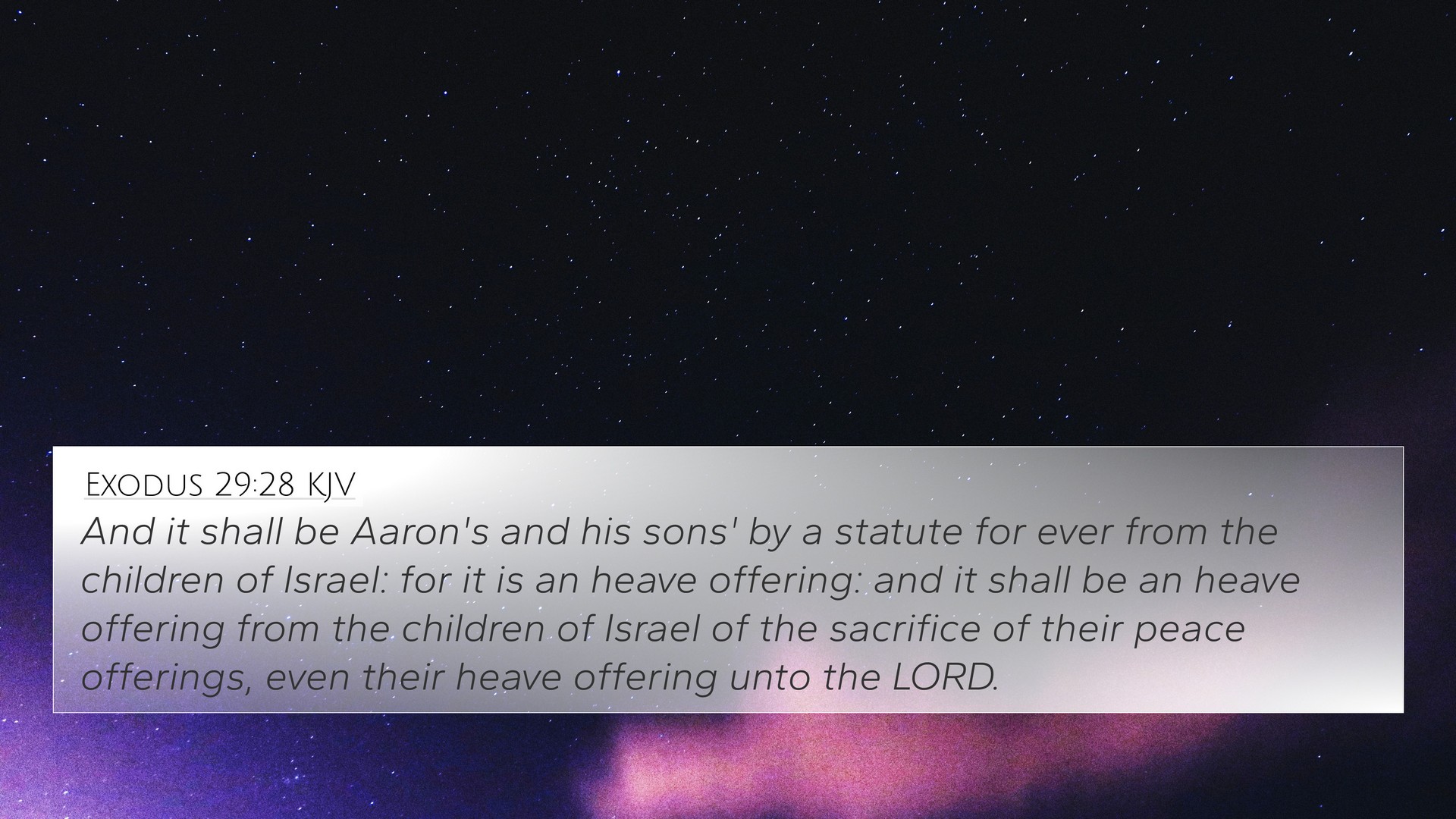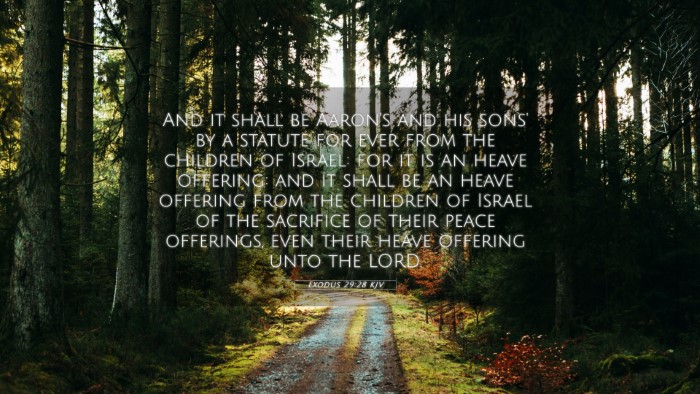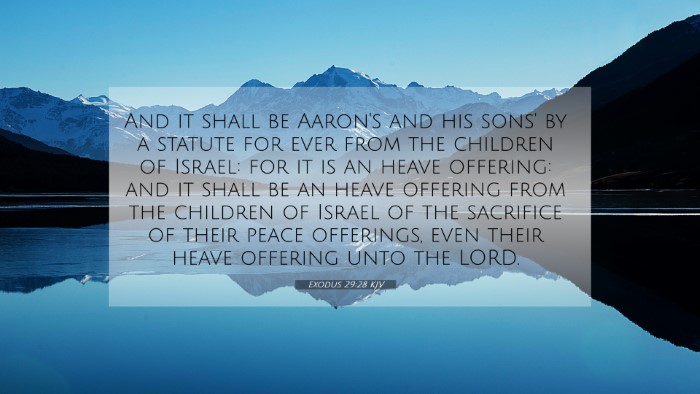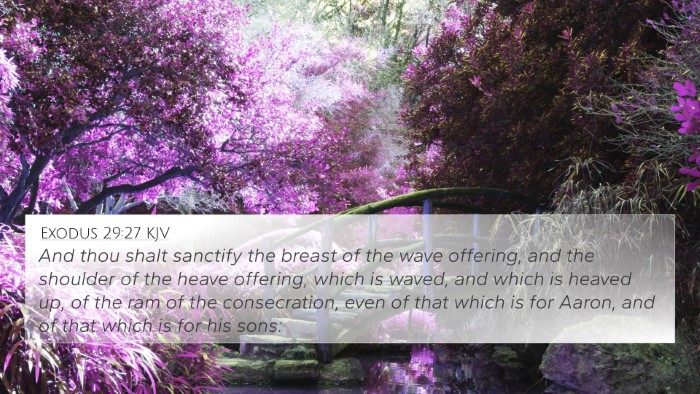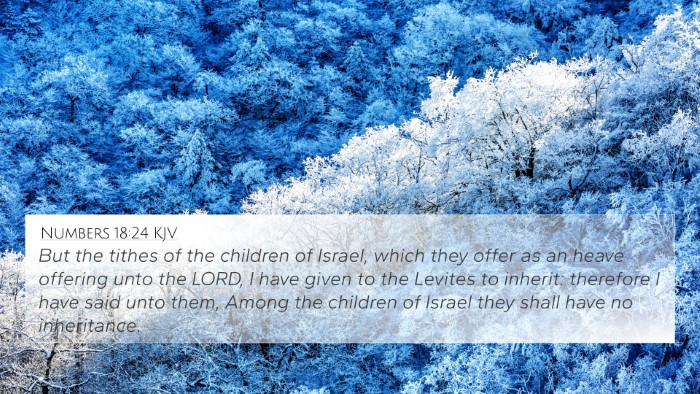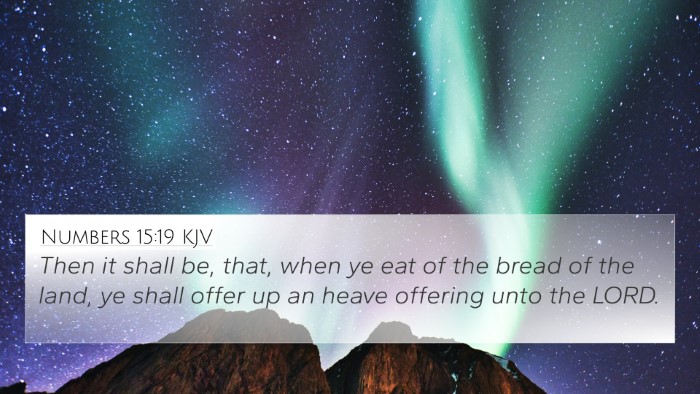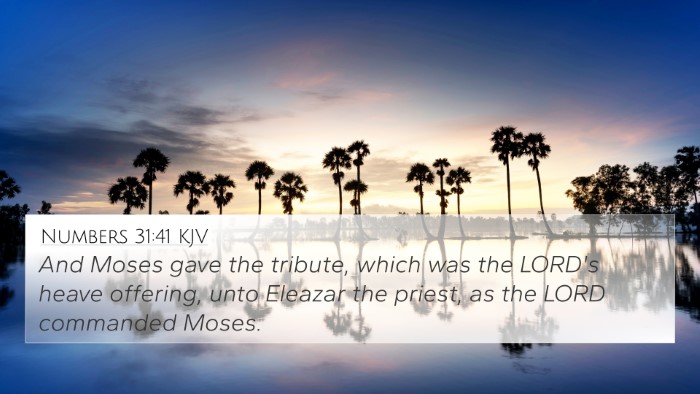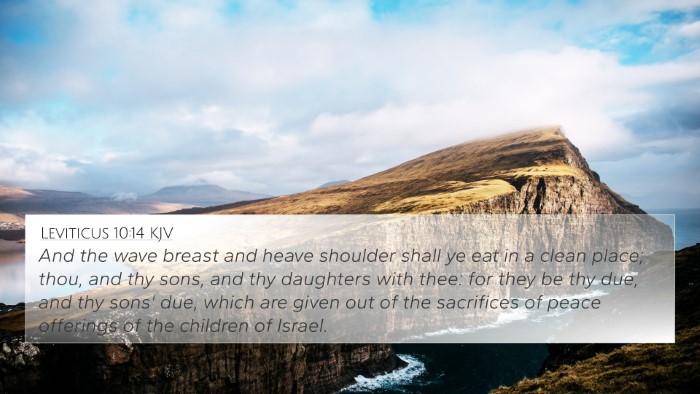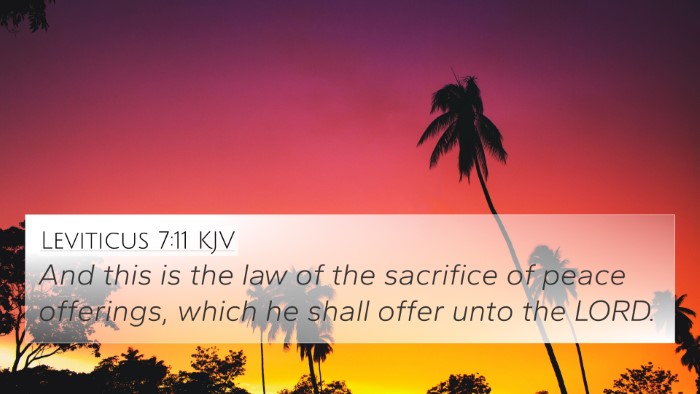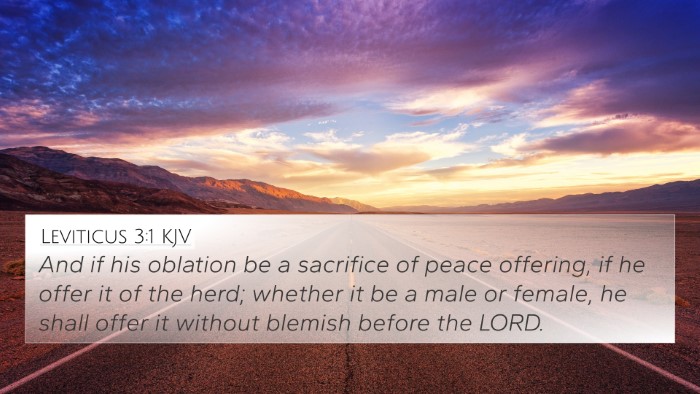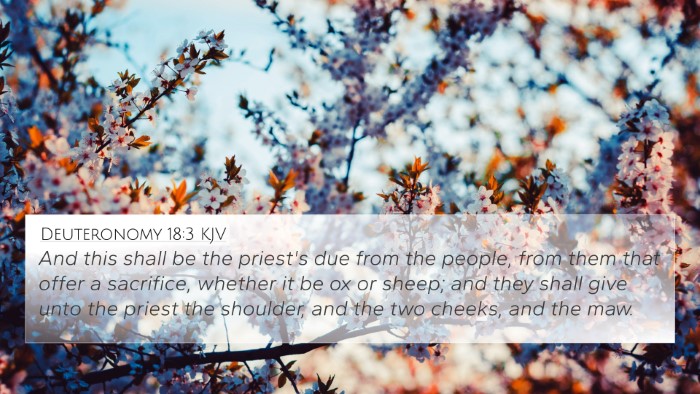Understanding Exodus 29:28
Verse: Exodus 29:28 - "And it shall be Aaron’s and his sons’ by a statute forever from the children of Israel: for it is an offering; and it shall be an offering of the children of Israel for their peace offerings."
Summary of Meaning
The context of Exodus 29:28 is crucial for understanding its implications regarding the ceremonial practices instituted for Aaron and his sons. This verse speaks to the priestly provisions that were outlined during the consecration of priests. It emphasizes the eternal aspect of their office and the specific offerings they were to receive.
Insights from Commentaries
-
Matthew Henry:
Henry discusses the significance of this verse in the context of the eternal priesthood established through Aaron and his lineage. He notes that these peace offerings symbolize reconciliation between God and His people and underline the role of priests in mediating this relationship.
-
Albert Barnes:
Barnes elaborates on the notion that this provision for the priests was not only a means of support but also a divine ordinance that highlighted the sacredness of the offerings. He indicates that these offerings were part of the children of Israel's covenant with God, serving both as a physical sustenance for the priests and a spiritual act of loyalty to God.
-
Adam Clarke:
Clarke brings attention to the continuity and permanence of the priest's role as established in this verse. He explains that the term "statute forever" signifies the ongoing nature of these sacrificial provisions and reflects the commitment the Israelites had towards their spiritual leaders within the covenant framework.
Bible Verse Cross-References
This verse connects with several other scriptures that explore themes of priesthood, offerings, and covenant relationships:
- Leviticus 7:34: Discusses the portions of offerings given to priests, reaffirming their right to the offerings made by the people.
- Hebrews 7:21-24: Provides a New Testament perspective on the eternal priesthood of Christ as compared to the Levitical priesthood.
- Exodus 28:1: Details the garments and consecration process for the priests, emphasizing their sacred role.
- Numbers 18:8-10: Outlines the responsibilities and privileges of the Levitical priests concerning offerings.
- Psalms 110:4: Speaks to the priestly order of Melchizedek, further indicating the eternal nature of priesthood.
- 1 Peter 2:9: Relates to the New Testament understanding of believers as a royal priesthood, establishing a connection to the Old Testament's priestly duties.
- Romans 12:1: Calls believers to present their bodies as living sacrifices, linking to the sacrificial system initiated in the Old Testament.
Thematic Connections
The themes encapsulated in Exodus 29:28 resonate throughout the entirety of Scripture and facilitate comparative analysis:
- The Role of the Priest: Throughout the Bible, the priest acts as a mediator between God and man. This theme is explored in both Testaments.
- Sacred Offerings: The offerings outlined here are foundational to understanding the sacrificial system leading up to Jesus Christ.
- Covenant Relationships: The importance of covenant is a recurring theme, birthing the need for dedicated individuals (the priests) to uphold these relationships.
Tools for Bible Cross-Referencing
For those studying the Scriptures, utilizing tools for Bible cross-referencing can greatly enhance understanding. Here are some methods:
- Bible Concordance: A reference tool that helps find terms and their occurrences throughout the Bible.
- Cross-reference Bible Study: Involves reading parallel verses to draw deeper meaning from the text.
- Bible Chain References: Annotated lists of verses related thematically or contextually.
Practical Applications
Understanding Exodus 29:28 within the greater narrative of Scripture can lead to profound insights and applications for both personal faith and church practices today.
- Recognizing the Role of Leadership: Just as priests had designated roles, church leaders today carry the responsibility of mediating between God and their communities.
- Embracing the Sacrifice: The peace offerings discussed remind us of Christ's ultimate sacrifice, encouraging us to live sacrificially for others.
Closing Thoughts
Exodus 29:28 serves as a vital link in understanding the sacrificial systems of the Old Testament and the continuing relevance of priestly duties, thereby connecting to New Testament themes of sacrifice, mediation, and covenant. By cross-referencing this verse with others and exploring its multi-faceted themes, readers can uncover a richer understanding of the biblical text and its implications for faith today.
